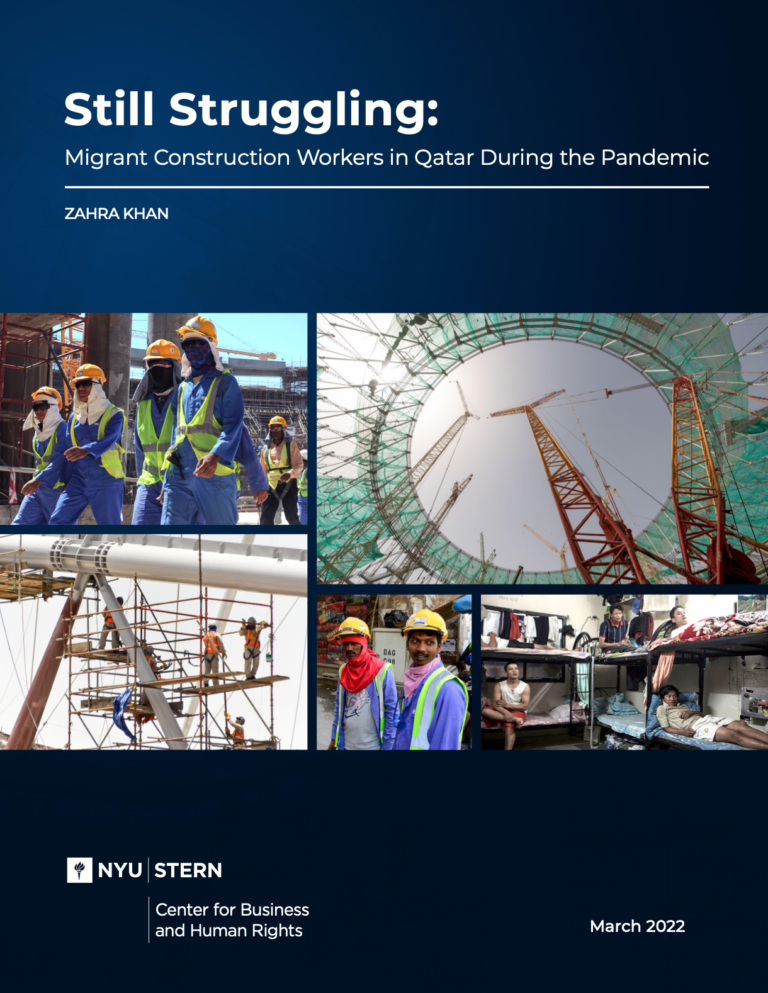This report uses Qatar as a case study to examine how the global public health crisis affected destitute migrants in the Middle East and how employers and the government responded. It also makes a series of reform recommendations that would promote human rights by improving workers’ economic and living conditions.
The report’s central findings are two- fold: After a slow start, the government of Qatar provided migrant workers with free, adequate healthcare in response to the pandemic. But foreign laborers suffered economically as a result of construction delays, wage reductions, terminated contracts, and deportations. The contrast between the government’s vigorous public health campaign and its failure to protect workers’ livelihoods is key. Qatar should address migrants’ economic needs with the same energy and resourcefulness illustrated by its efforts to stem the spread of Covid-19.

